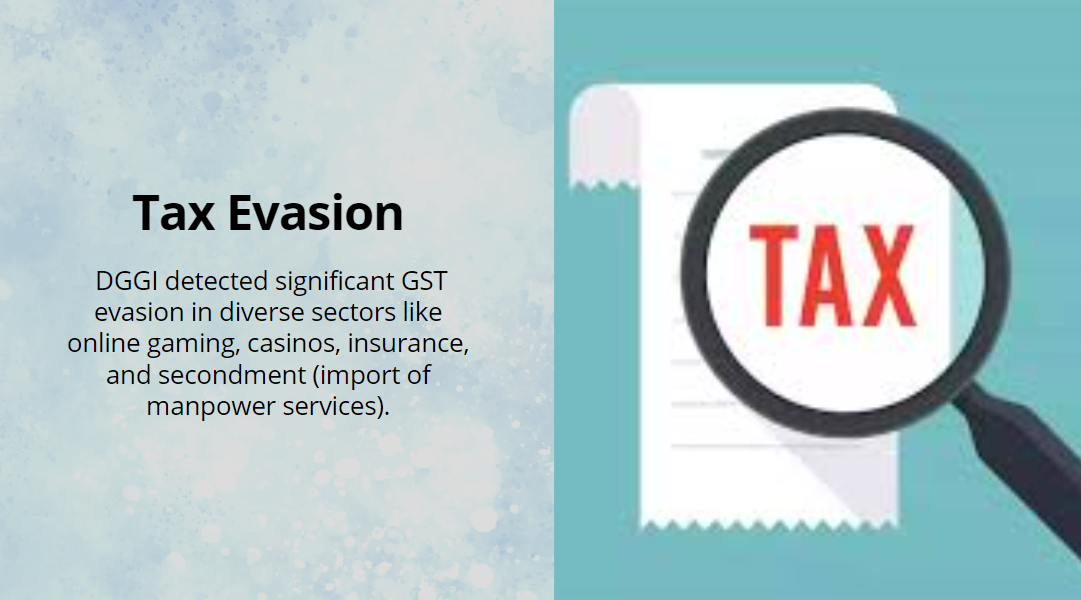GST intel unit detected over Rs 1.98 trn worth of tax evasion cases in 2023

The GST intelligence unit detected tax evasion of more than Rs 1.98 trillion last year and arrested 140 masterminds who were involved in defrauding the exchequer, the finance ministry said on Thursday.
In 2023, the Directorate General of GST Intelligence (DGGI) detected significant GST evasion in diverse sectors like online gaming, casinos, insurance and secondment (import of manpower services).
“DGGI has achieved an increase in the detection of cases of evasion and voluntary payments. In 2023, DGGI detected 6,323 cases involving evasion of duty of Rs 1,98,324 crore with a voluntary payment of Rs 28,362 crore. 140 masterminds involved in GST evasion were arrested,” the ministry said in a statement.
This is a significant improvement as compared to 2022 wherein 4,273 cases were detected, amounting to a duty of Rs 90,499 crore, and voluntary payment of Rs 22,459 crore and 97 arrests were made.
There was a 119 percent increase in the year-on-year amount of duty evasion detected by DGGI and 26 percent increase in the voluntarily payments made, the ministry said.
With regard to the detection of fake Input Tax Credit (ITC) claims, the ministry said DGGI has initiated a special drive against ITC fraudsters to plug the leakage in government revenue. As a result, 2,335 cases of ITC fraud of Rs 21,078 crore were detected, with a voluntary payment of Rs 2,642 crore.
As many as 116 masterminds were arrested to check the menace of fake invoicing, it said.
This is a significant improvement in comparison to 2022 wherein 1,646 cases were detected, totaling an amount of Rs 14,471 crore, and a voluntary payment of Rs 1,604 crore was made. As many as 82 masterminds were arrested.
“During the year 2023, DGGI, which is the premier investigating agency for GST matters, continued its relentless pursuit to check evasion of GST across the country… Non-compliance in these sectors not only pose a threat to the fiscal stability but also involve potential social, financial as well as economic security implications,” the ministry said.